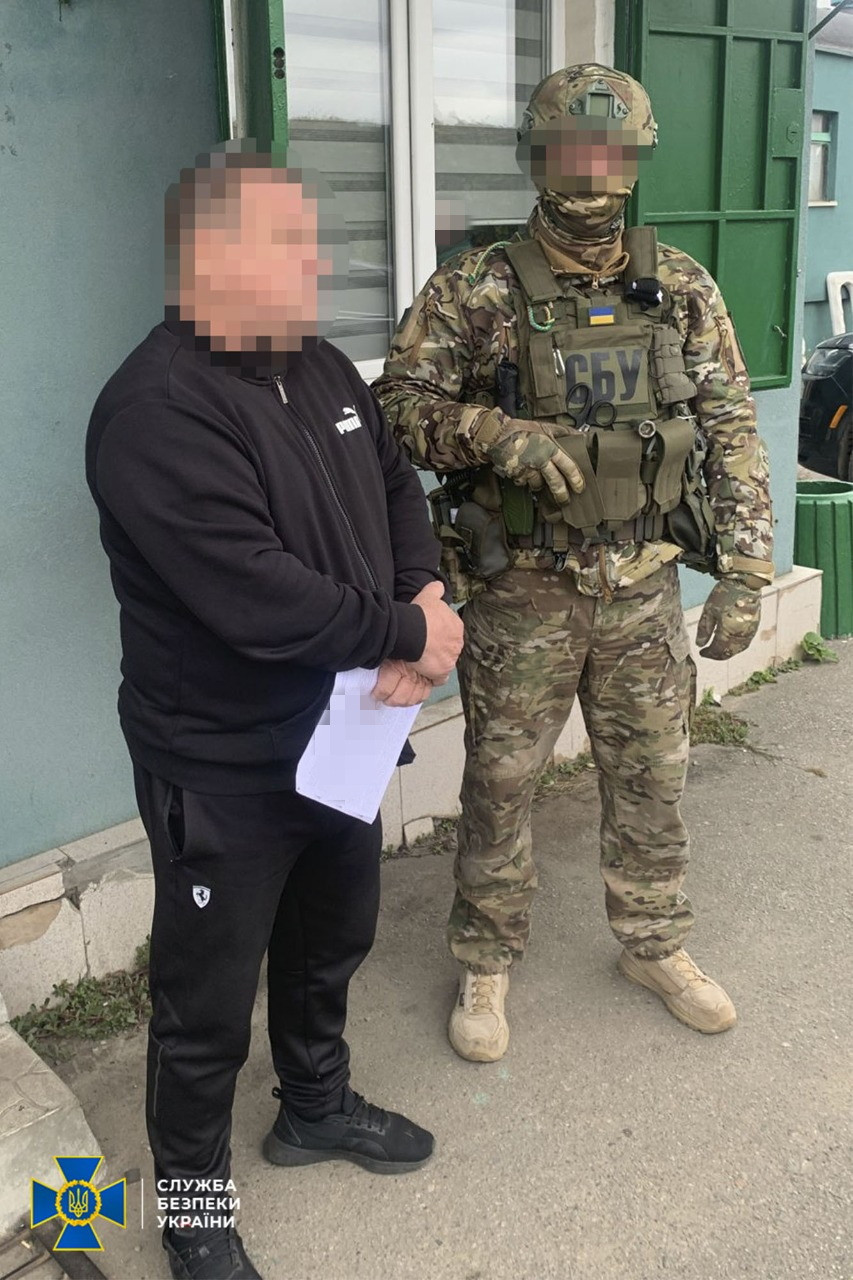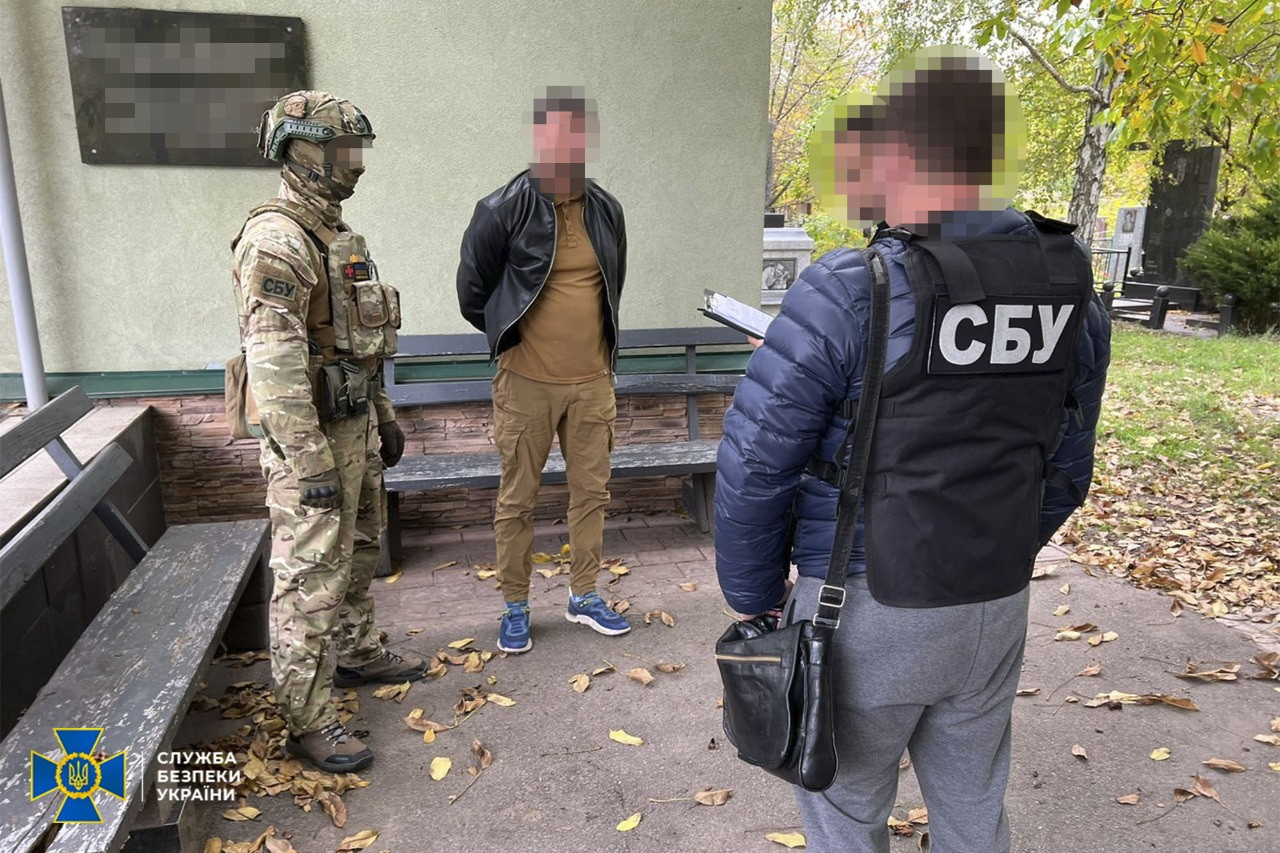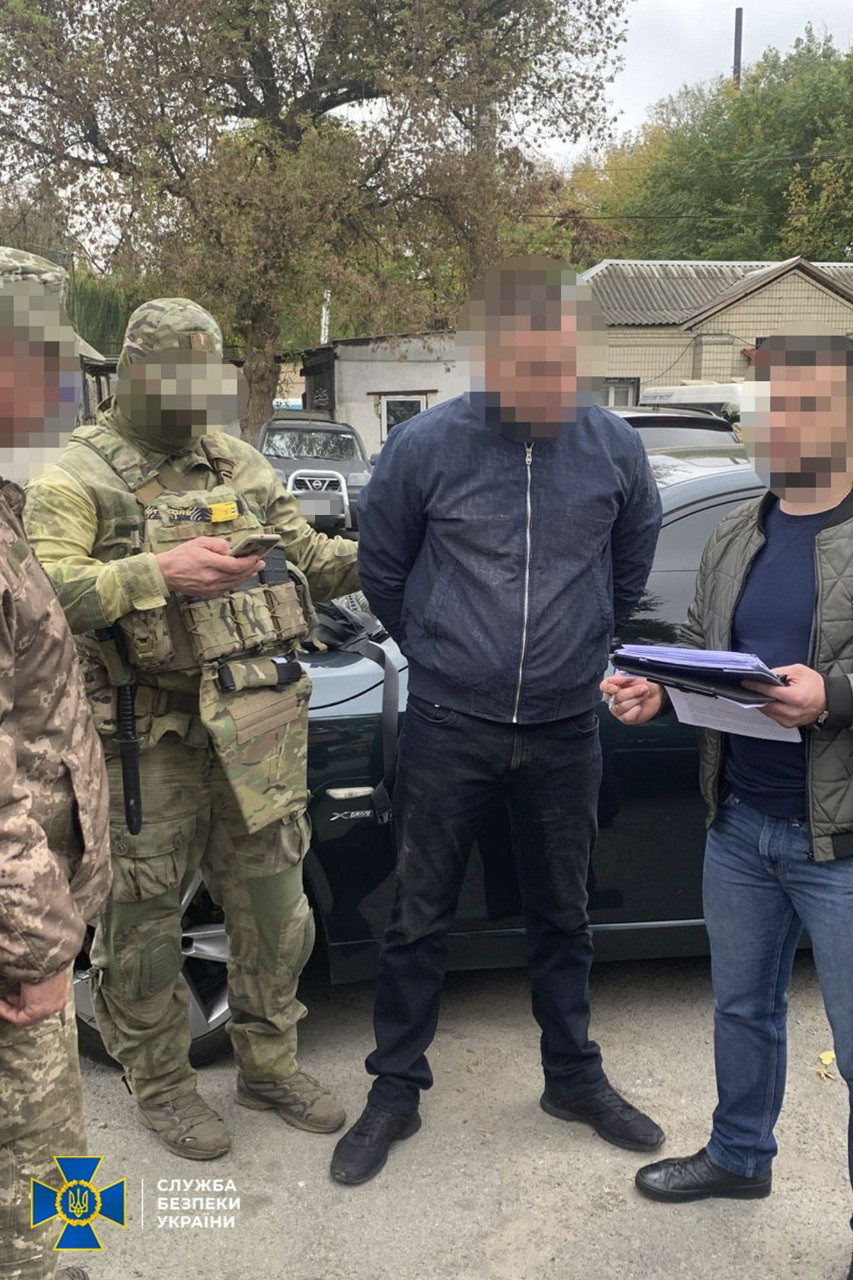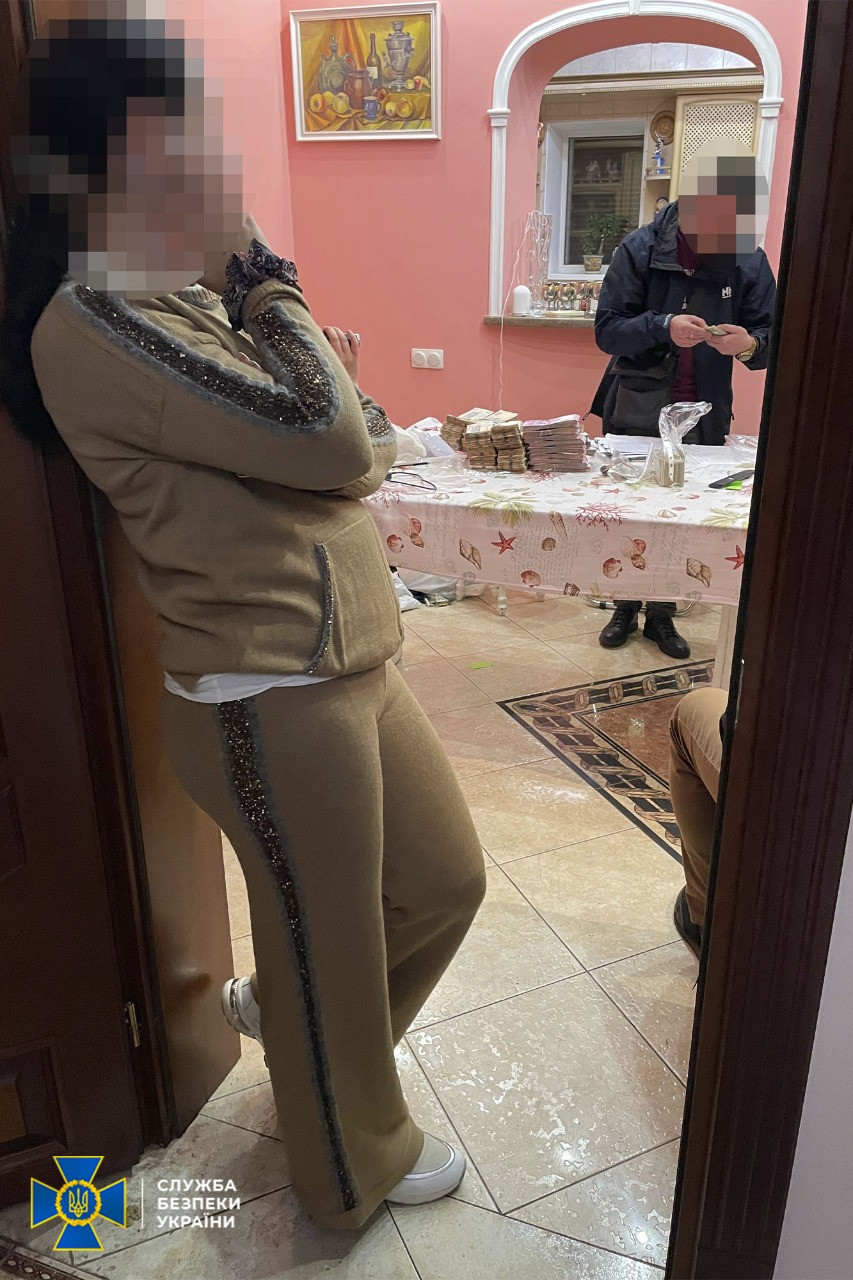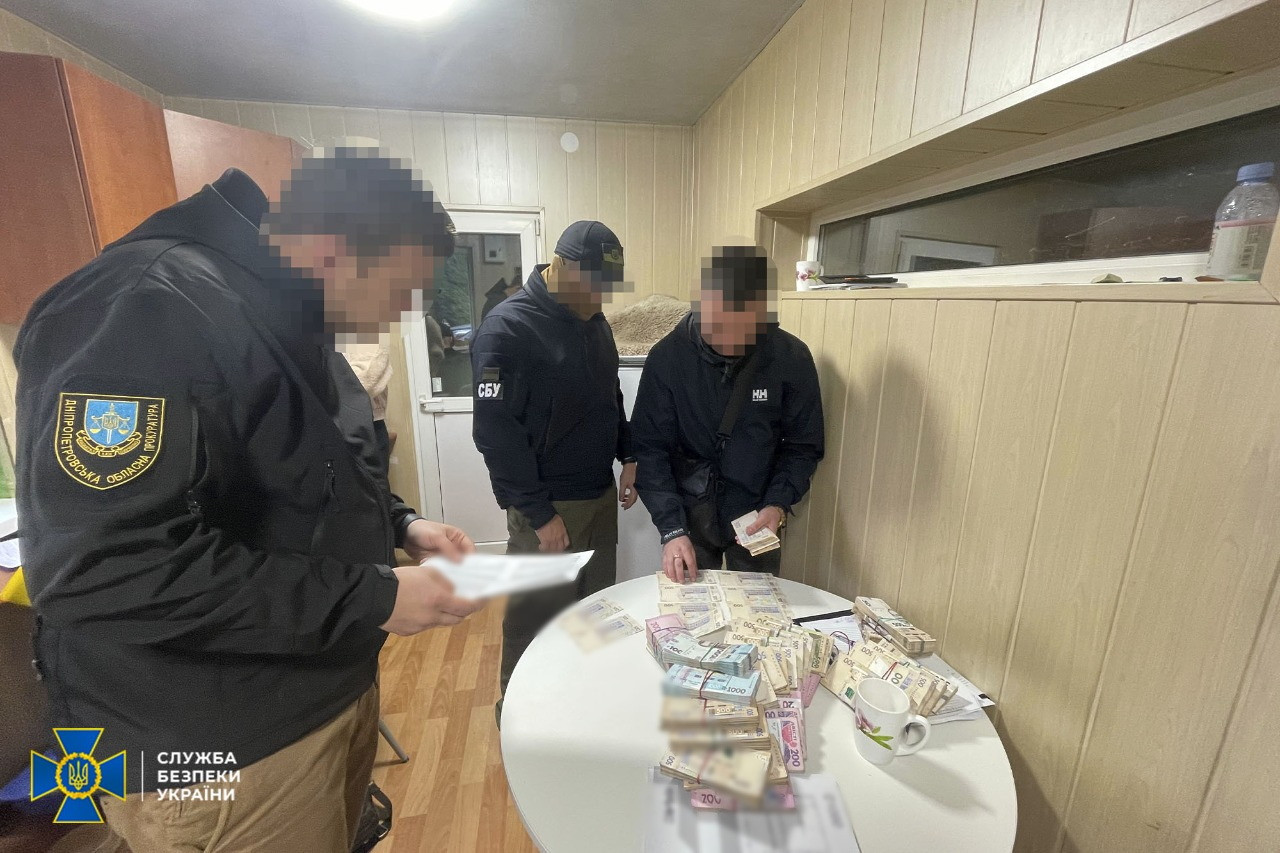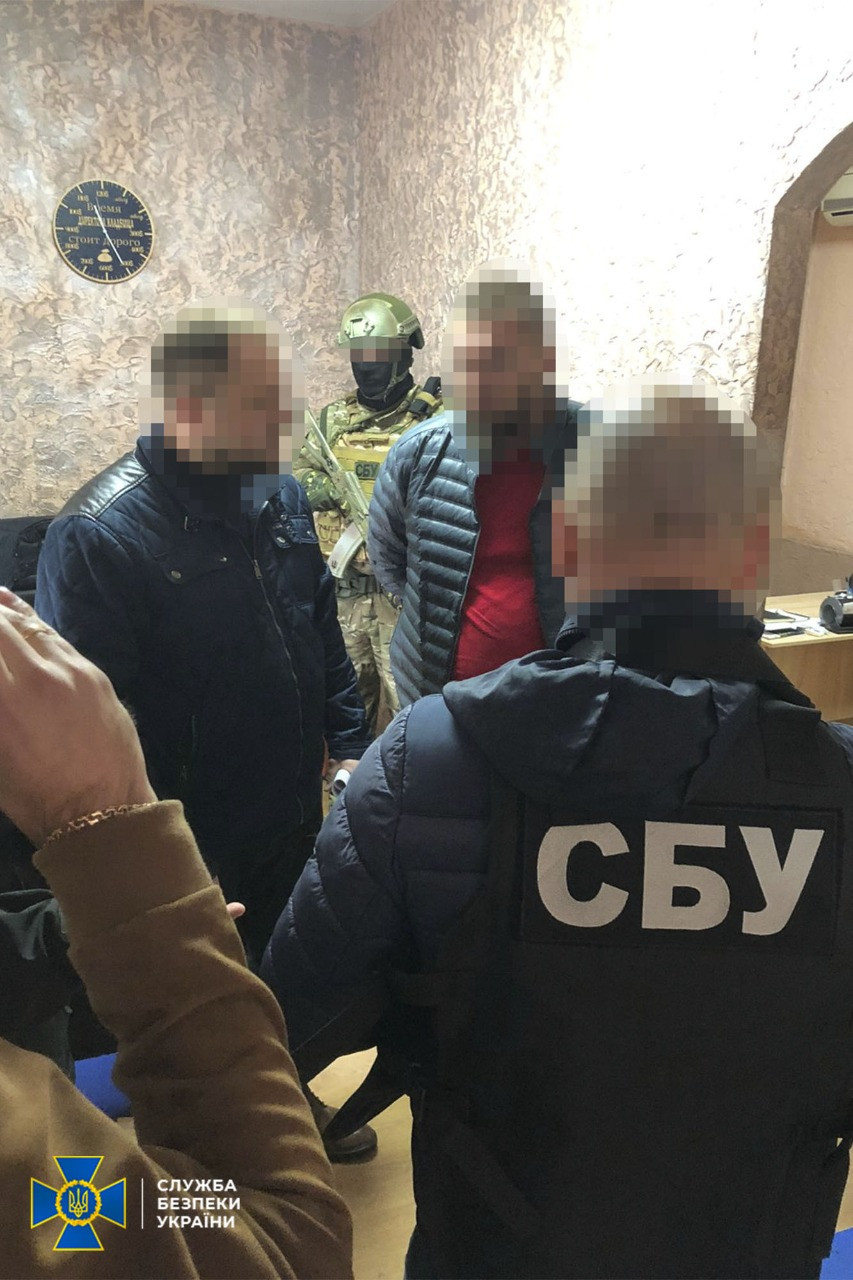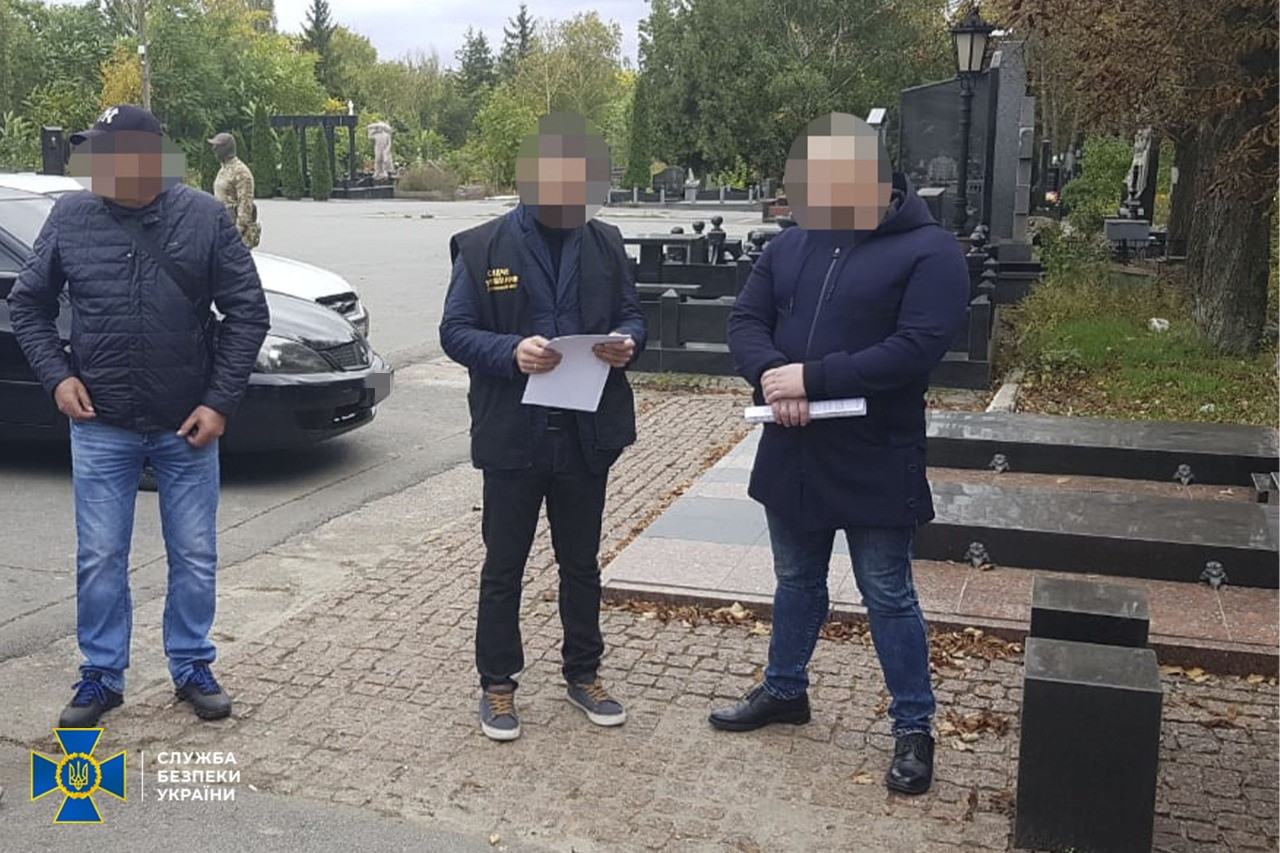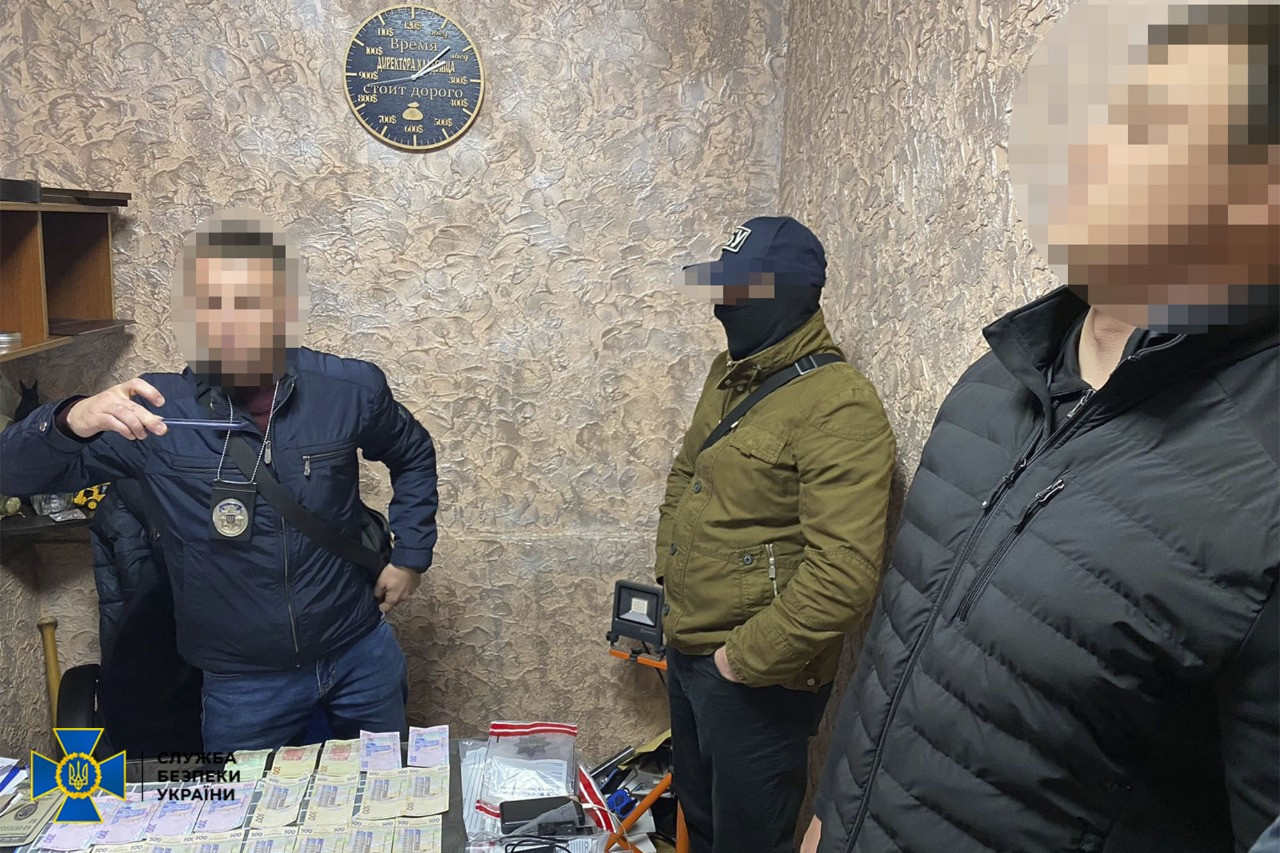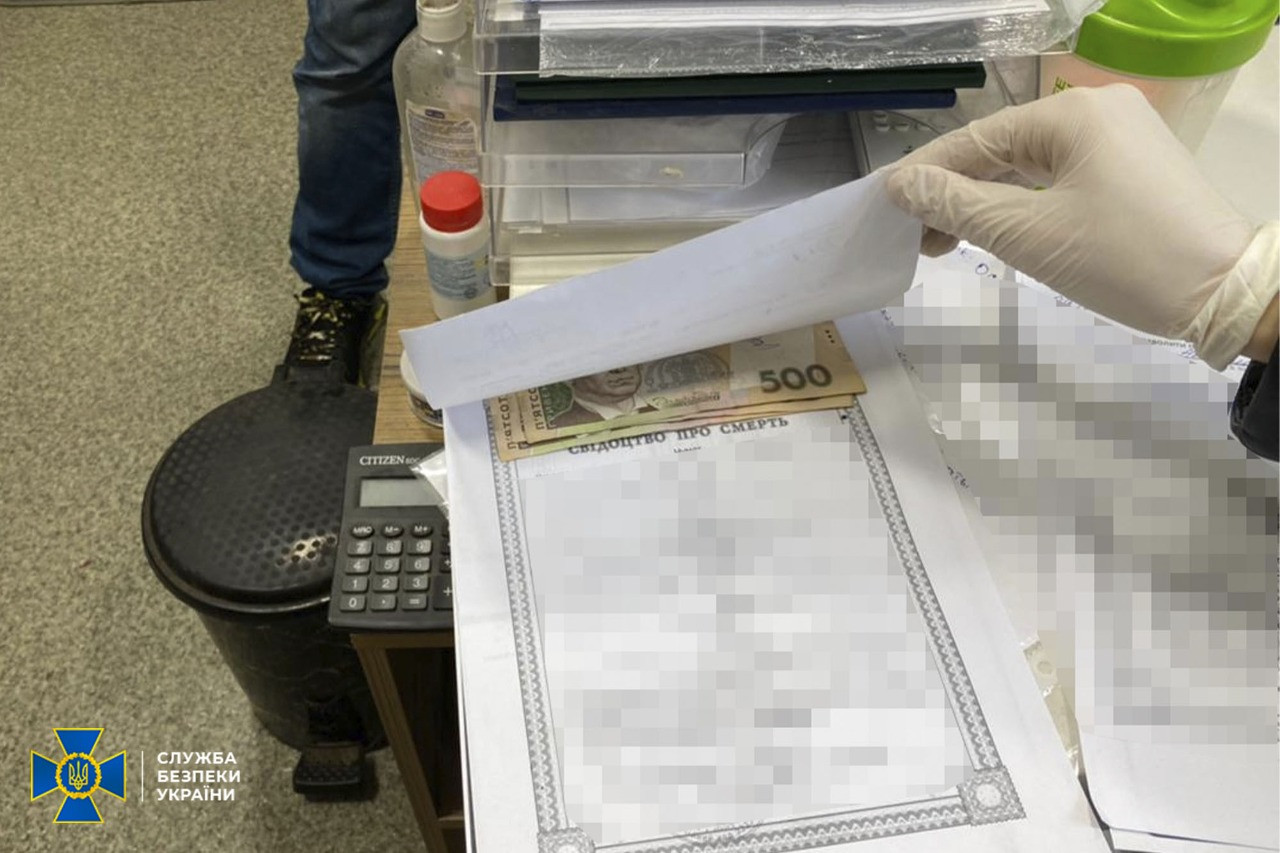SSU exposes Dnipro officials on large-scale corruption: no permission for burial without bribe
The SSU dismantled a large-scale criminal scheme in the municipal enterprise City Funeral Service of Dnipro City Council.
Officials of this enterprise systematically extorted bribes for allocating burial places at the city’s cemeteries, even during martial law.
Every month, the organizers of the scheme received ‘profits’ of about UAH 7 mln (USD 171,000).
As a result of the operation, 10 officials were detained - almost all the management of the company.
According to the investigation, the corrupt officials set up an unlawful mechanism to obtain money from citizens for providing funeral services. For bribes, the offenders ‘guaranteed’ people assistance in allocating places for burial of their relatives.
Despite the official payment of UAH 3,500, they demanded from UAH 10,000 to 50,000 for one burial. The sum depended on the location of the cemetery and the site of burial.
If relatives of the deceased refused to pay the ‘tribute’, the ‘entrepreneurs’ created artificial bureaucratic obstacles for the burial.
The SSU documented 9 episodes, in which the management of the municipal entity received bribes.
During the searches at the suspects’ offices and homes, the law enforcement found:
- records and computer equipment with evidence of unlawful activity;
- almost UAH 5 mln (USD 122,000), likely obtained by criminal means.
Basing on the results of the investigation, all the detainees were served a notice of suspicion of offence under Article 368.3 of the CCU (bribery).
The decision on additional qualification of the group’s criminal actions is pending. Court has chosen custody as a measure of restraint for all the detained individuals.
The operation was carried out by the SSU Office in Dnipropetrovsk Region jointly with the National Police investigators under the procedural supervision of the Prosecutor’s Office.
According to Article 62 of the Constitution of Ukraine, a person shall be presumed innocent of committing a crime and shall not be subjected to criminal punishment until their guilt is proven in line with the law and established by a relevant court verdict.


